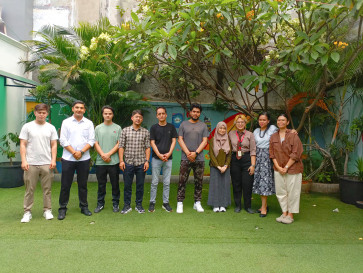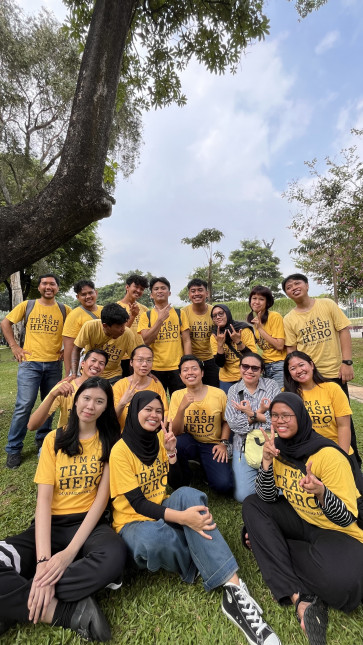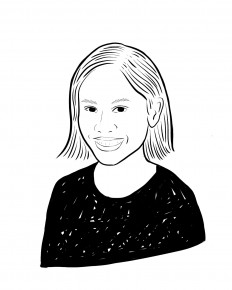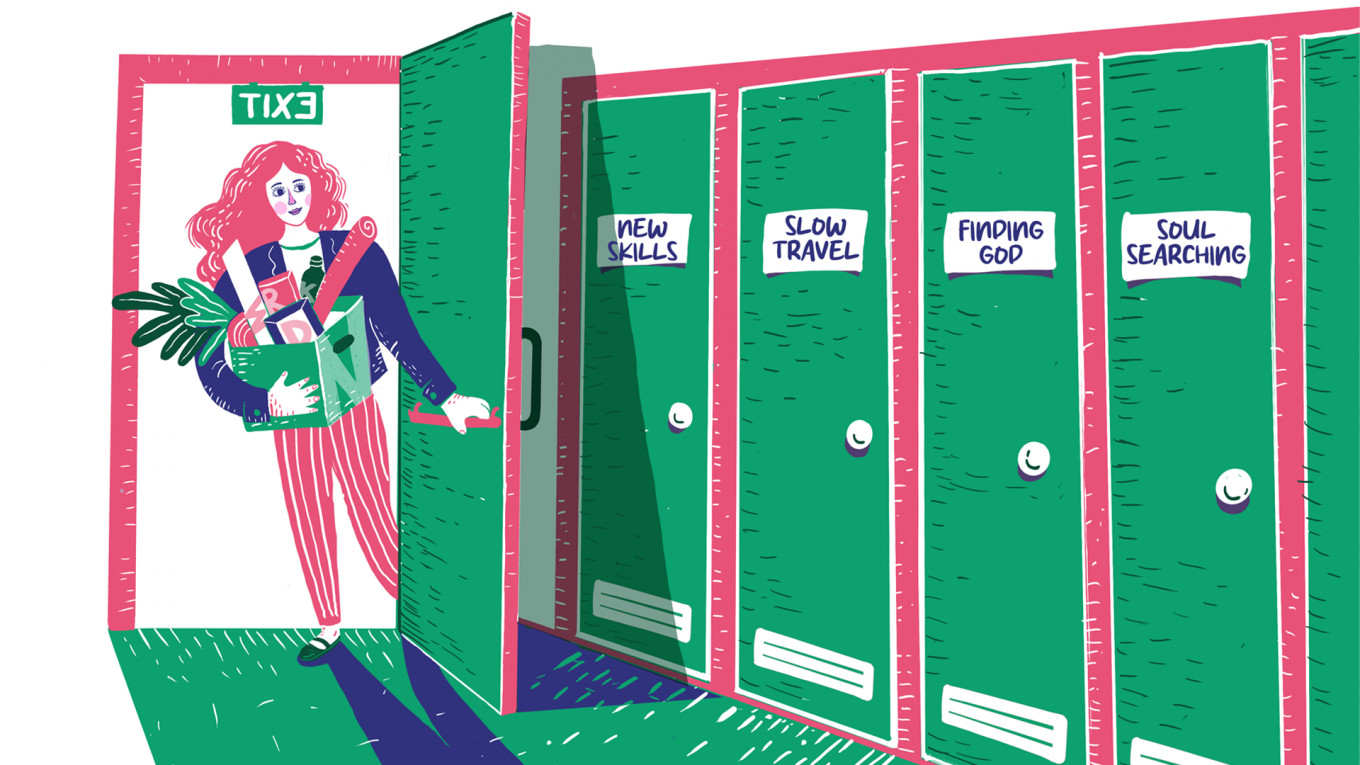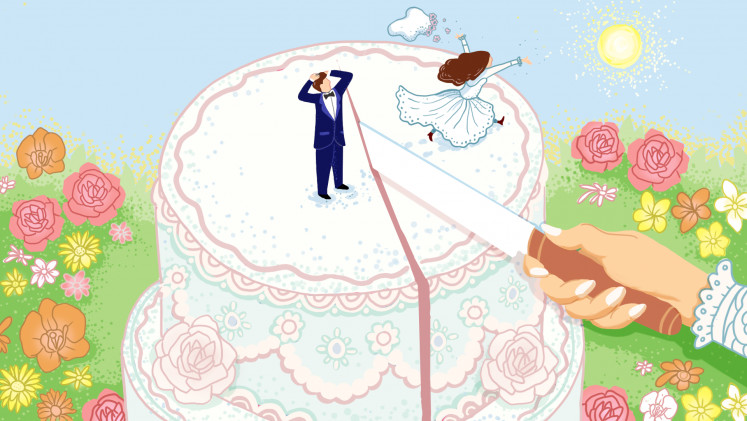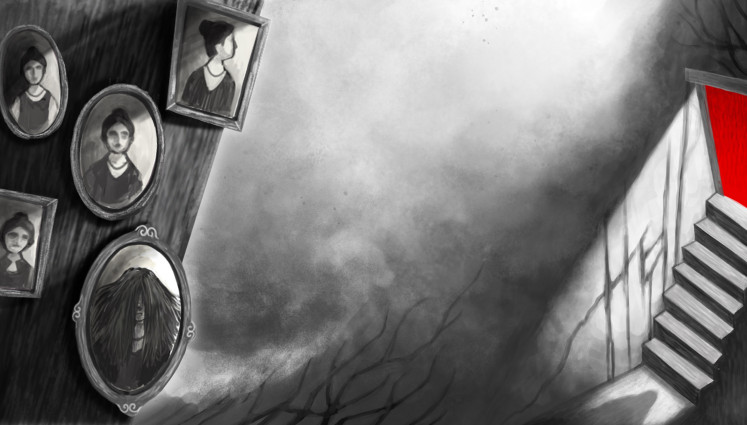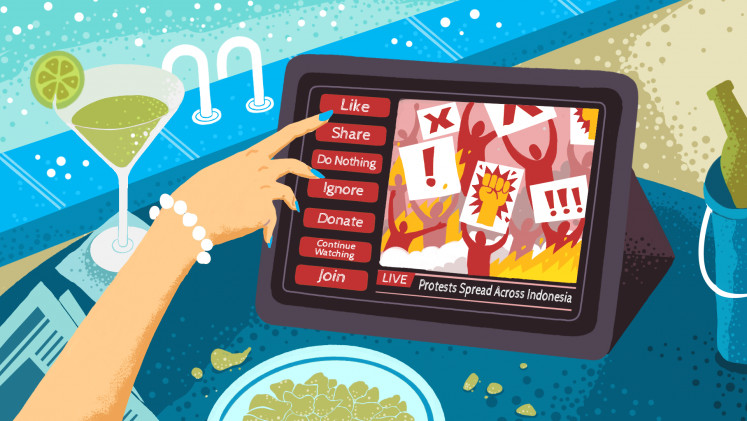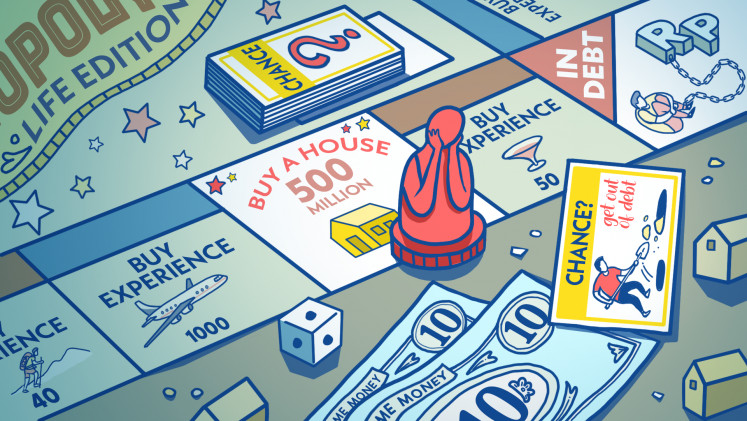I first saw the joke on X: Merriam-Webster quote-tweeted an article about “micro-retirements”, defined as taking a one- to two-week break from work every 12 to 18 months, with a deadpan correction: “Vacations. The word is ‘vacations’.”
It was a perfect dig. Dry, dismissive and just the kind of response you’d expect from older generations who see this trend as simply rebranding the obvious.
I laughed too. At first.
Because in this economy? The idea of taking months off work to travel, pursue hobbies or “find yourself” sounds like a privilege, maybe even a bit self-indulgent. If I’m not earning, I’m panicking, not posting sunrise photos with #microretirement.
But the more I saw it popping up on social media and in conversations among friends, the more I started wondering whether this trend isn’t just about indulgence. Maybe these micro-retirements say something real about how younger workers are trying to reshape their relationship with work.
What, exactly, is a micro-retirement?

Thank you!
For signing up to our newsletter.
Please check your email for your newsletter subscription.
In simple terms, it’s the idea of taking regular, self-directed breaks from work throughout your career. Not when you’re 60, not after a decade at the same company. These breaks can happen in your 20s, 30s or 50s, and they don’t always include a clear goal.
Unlike a sabbatical, which often involves stepping away from your job with the intention of returning, micro-retirements tend to happen between jobs, or without any promise of coming back to the same role. Sabbaticals are sometimes formal and employer-approved (especially in academia or large companies), though not always.
But micro-retirements are almost always informal, self-directed pauses. Sometimes that means traveling or picking up a creative pursuit. Other times, it’s just logging off and doing nothing for a while.
Like many other TikTok trends, micro-retirement is an old concept that is making a comeback. The idea of stepping away from work at regular intervals was popularized by Tim Ferriss in The 4-Hour Workweek back in 2007. It was a novel idea then, and nearly two decades later, it's still something many of us long to achieve but haven’t quite figured out how to do it.
Ferriss didn’t just frame micro-retirement as a break, it was a lifestyle.
The concept was rooted in how you design your work, your income and your time. Instead of working nonstop and saving rest for the end of your life, he argued for building in short “mini-retirements” throughout your career. Take a month off every three months, he suggested. But to do that, you’d need to create systems, businesses that run independently, passive income or workflows that could run without you.
It was catered mostly to entrepreneurs and solopreneurs, and positioned as a smart alternative to early retirement: rest in smaller doses, more frequently, without waiting for age 65.
“You learn something new by changing up your environment and breaking your routine, by leaving the cubicle. -Tatiana Lisdasari
But the version we’re seeing now, on TikTok, in conversations among younger workers, has shifted.
It’s less about strategically planned, sufficiently funded mini-breaks to rest and recharge, and more about walking away when the job stops making sense. For many, it often comes at a breaking point. It’s a response to burnout, disillusionment or the growing sense that traditional career paths no longer align with their values.
It’s about resisting a culture that equates self-worth with productivity, and carving out space to rethink what success looks like.
Why now? Because the old model is breaking.
Even before the pandemic, the wheels were already starting to come off the career conveyor belt. But now? It’s not just a vibe, it’s a stat: About 45 percent of Gen Zs and millennials have left jobs because they lacked purpose, according to a recent Deloitte survey.
That’s not surprising. Many of us are working in roles that feel transactional. In start-ups and corporates alike, employees are often seen simply as numbers, replaceable. Loyalty doesn’t always pay off. Meaning isn’t guaranteed. And when purpose disappears, younger workers are asking: Why stay?
Some take breaks after being laid off. Others leave by choice. But across the board, there's a clear shift. More than 50 percent of Gen Zs are planning to take long career breaks, according to research commissioned by UK Professional Services Consultancy Barnett Waddingham.
Even in the middle of economic uncertainty, people are choosing rest.
Meaning over money
Take Tatiana Lisdasari, a 34-year-old career coach, who took her first “micro-retirement” at 22. It lasted a full year.
“I was looking for the purpose of my life, something beyond money,” she said.
“I didn’t have much of a goal other than to seek God. I didn’t do any work at all. I spent days at a pesantren [Islamic boarding school].”
Some might say that was too young for a career break, but anyone who’s worked long enough in an office knows how quickly that environment can chip away at your identity.
“At work, you are only known for your skills, your positions, your labels and contributions,” she said.
But it is a contrived persona.
Over the years, Tatiana has taken multiple breaks, each one shaped by her life phase and budget.
“I think it’s important that you don’t do any work at all. When you mix work and leisure, you can’t be fully present.”
When asked whether the breaks made it harder to find work again, she shrugged: “Thankfully not. But if they reject me because of this gap, then we’re just not meant to be.”
For her, these pauses weren’t just rest; they were essential recalibrations. She needed them to realign her career path with her values and avoid being swept away by the inertia of corporate life.
That’s why Marten, 31, decided to take a break from a unicorn start-up in Jakarta. He’d spent six years there, climbed the ladder and led teams across departments. It was demanding but also fulfilling, until the company hit a rough patch.
When his manager asked him to lay off members of his team, something shifted.
“I realized that we’re just numbers,” he said.
“At the end of the day, it was transactional. When the company needs to cut costs, the people are the first in line. I think that’s pretty ruthless.”
At the same time, his wife was accepted into a master’s program in Berkeley. So he left everything and followed her to California, becoming a full-time househusband and father.
Instead of managing teams, he managed meals, diapers and school runs.
“That moment made me realize that health and family do matter more than your career,” he said.
The real value of pausing
If there’s one thing I’ve come to appreciate about these micro breaks, it’s that they’re not about self-indulgence.
They’re about learning about shifting your pace. Merriam-Webster might call it a vacation, but micro-retirement is its opposite. Vacations are often packed, social and even stress-inducing. Micro-retirements are slower, quieter and more inward-facing.
“You learn something new by changing up your environment and breaking your routine, by leaving the cubicle,” said Tatiana.
“When you travel, you meet new people, you broaden your horizons.”
And that might be what Gen Z and millennials are better at than their predecessors: seeing learning as something that can happen anywhere, not just in formal settings or 10-year tracks.
That’s what Marten did during his break. He attended events, explored generative AI, picked up latte art, and that last one unexpectedly opened a new path. He now works at a coffee start-up in Jakarta.
“When I met new people, I didn’t feel pressured to appear cool because I expected nothing from the conversation. So if I want to throw in some stupid questions, I don't feel embarrassed. I realize that this is the only time I can exercise this much freedom.”
Of course, this isn’t just a Gen Z thing.
Luca, who’s in his 50s, is currently on his second career break after his last contract ended. Having spent most of his life in full-time jobs, he now knows that model isn’t built for him anymore.
“I’m preparing for the era of gig work,” he said.
“Which means that I would need to upgrade my skills, learning design, photography and philosophy.”
He’s not chasing a break for the sake of it. Like many others his age, he’s adapting because the rules have changed.
So, am I convinced?
I’m still cautiously optimistic. Micro-retirement can absolutely be risky. If managed poorly, it can lead to financial disaster.
And no, it’s not accessible to everyone, not in an economy this uncertain.
As Tatiana put it, “You never know what’s going to happen. And you have to be brave enough to face life.”
But at the same time, she added, “There’s nothing to lose.”
And maybe that’s the point. This trend wouldn’t be gaining traction if the old model of work were still working. In a Milieu Insight survey of 6,000 workers in Southeast Asia, nearly two-thirds said they’ve taken a career break. It’s not just Gen Z, it’s spreading across generations, because people are exhausted, and because the rules of employment are changing whether we like it or not.
As Luca said, we’re preparing for a future where full-time jobs might no longer be the norm.
“We’re constantly faced with the very possibility that we have to switch careers, not that we want to,” Tatiana added.
A career break won’t guarantee a better job. But it might give us something far more rare in the blur of work-room to ask better questions, and time for the kind of self-discovery that can quietly change everything.
So maybe these micro-retirements aren’t indulgent. Maybe they’re preparation. Maybe they’re the pause we need to take a breath, reflect and realign.
Michelle Anindya is a writer and journalist. From her home in Bali, she writes about anything from coffee to tech.






